8 “Healthy” Foods That Are Actually Ultra-Processed, Dietitians Share

You don’t have to look far on many grocery store shelves to find foods marketed with your health in mind. However, it’s never been harder to distinguish between items that are actually healthy and those using health-conscious marketing claims to disguise dubious ingredients. Ultra-processed foods, those that have been changed from their natural state by adding various food-derived substances, are some of the worst offenders. Yet experts say they’re not necessarily easy to spot unless you know what to look for.
“They most likely have many added ingredients such as sugar, salt, fat, and artificial colors or preservatives,” explains Harvard Health Publishing. “Ultra-processed foods are made mostly from substances extracted from foods, such as fats, starches, added sugars, and hydrogenated fats. They may also contain additives like artificial colors and flavors or stabilizers. Examples of these foods are frozen meals, soft drinks, hot dogs and cold cuts, fast food, packaged cookies, cakes, and salty snacks.”
Sarah Otto, the co-founder and in-house nutritionist for Goodness Lover, says that as a nutritionist, she’s often asked about seemingly healthy foods that are actually ultra-processed.
“I consistently emphasize the importance of looking beyond marketing claims and carefully reading ingredient lists and nutrition facts,” she tells Best Life, noting that it’s important to eat minimally processed foods whenever possible. “This approach ensures you’re getting the best nutritional value and avoiding the pitfalls of ultra-processed foods masquerading as healthy options,” she says.
Wondering which “healthy” foods are actually ultra-processed? These are the eight foods to avoid when you grocery shop, according to dietitians and nutritionists.
RELATED: This “Powerhouse” Vegetable Is the Healthiest, CDC Says—But You’re Probably Not Eating It.
1
Veggie chips
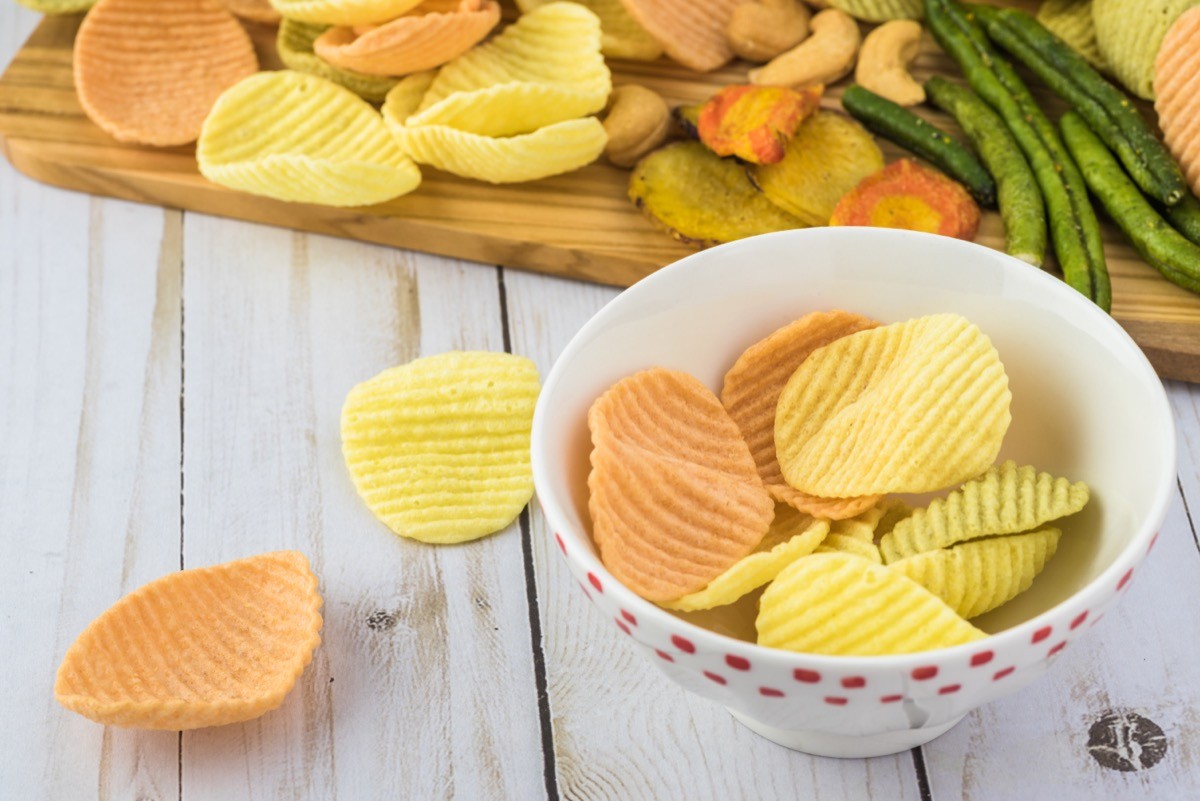
Parents often include veggie chips in their kids’ “healthy” packed lunches, but Otto says these snacks are actually ultra-processed, and that their marketing misleads consumers. She warns that many veggie chip brands contain only minimal amounts of actual vegetable content, and that this usually comes in the form of vegetable powders used primarily for color and flavor.
“Despite their name suggesting a healthy alternative to potato chips, they’re usually not much better nutritionally,” says Otto. “These chips are typically deep-fried, making them high in calories and fat, and they’re often laden with salt. The processing involved strips away much of the fiber and nutrients you’d get from eating whole vegetables. If you’re looking for a healthier chip alternative, I suggest making baked vegetable chips at home or simply enjoying fresh vegetable sticks with hummus.”
2
Protein bars

If good health is your goal, you can also skip the protein bar aisle the next time you go grocery shopping.
“I see them as highly processed products that can be more akin to candy bars with added protein,” says Otto. “Many contain as much sugar as conventional candy bars, and some use artificial sweeteners, which can cause digestive issues in sensitive individuals.”
“The protein sources used are often of lower quality and less bioavailable than whole food protein sources. Additionally, many brands use unhealthy fats and artificial preservatives to extend shelf life,” she adds.
3
Instant oatmeal
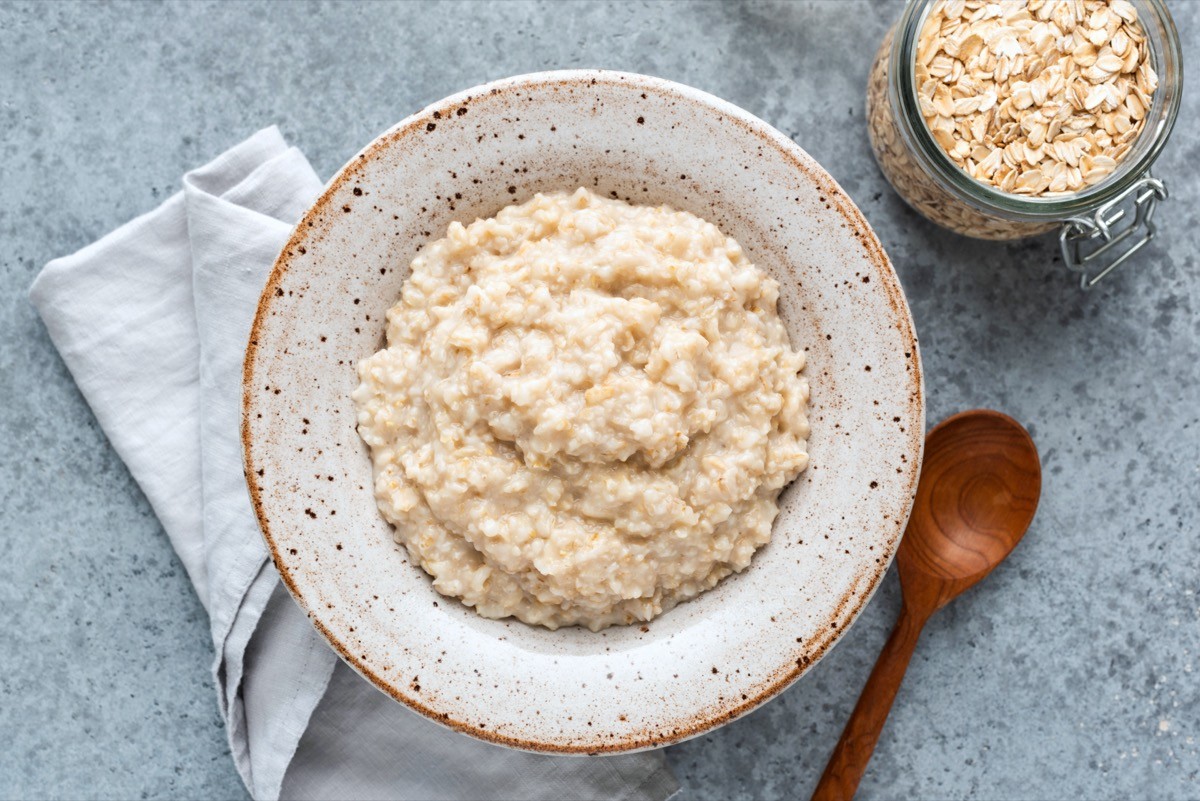
Oatmeal is a healthy addition to your diet—one that can help to lower your cardiovascular risk and stabilize your blood sugar. However, Otto warns that pre-packaged or flavored instant oatmeal is another seemingly healthy food that often falls into the ultra-processed category.
“Many brands load their instant oatmeal with significant amounts of added sugars, artificial flavors, colors, and preservatives. The sodium content can also be surprisingly high in some flavored packets,” she tells Best Life.
Recipe developer and social media personality Bobby Parrish added in a recent TikTok post that all oats are technically processed but that rolled oats don’t contain any harmful added ingredients. “Rolled oats are processed, but this is a good processing because to make them flat, you have to roll them,” he explains.
RELATED: 6 Signs You’re Eating Too Much Protein, According to Doctors.
4
Cereal
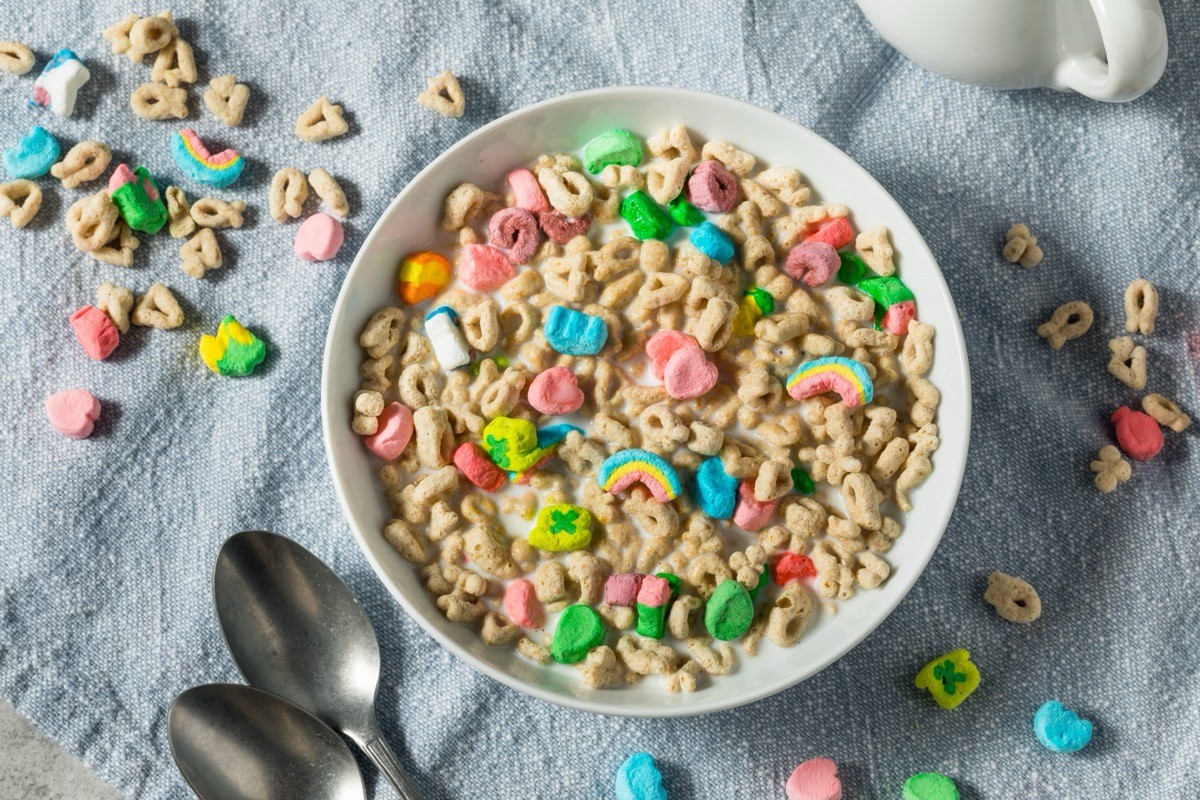
In that same TikTok post, Parish calls out boxed cereals for seeming “healthy” while actually being ultra-processed.
Picking up a box of Very Berry Cheerios, he says, “It’s a cereal made of oats—very different from the oats we just showed. As soon as you start to add cane sugar and corn syrup to the tune of 11 grams per serving, that’s your first and most troubling sign of ultra-processed food.”
Parrish then proceeds to read the nutritional labels of various other cereal brands, highlighting their artificial coloring and preservatives.
5
Gluten-free snacks
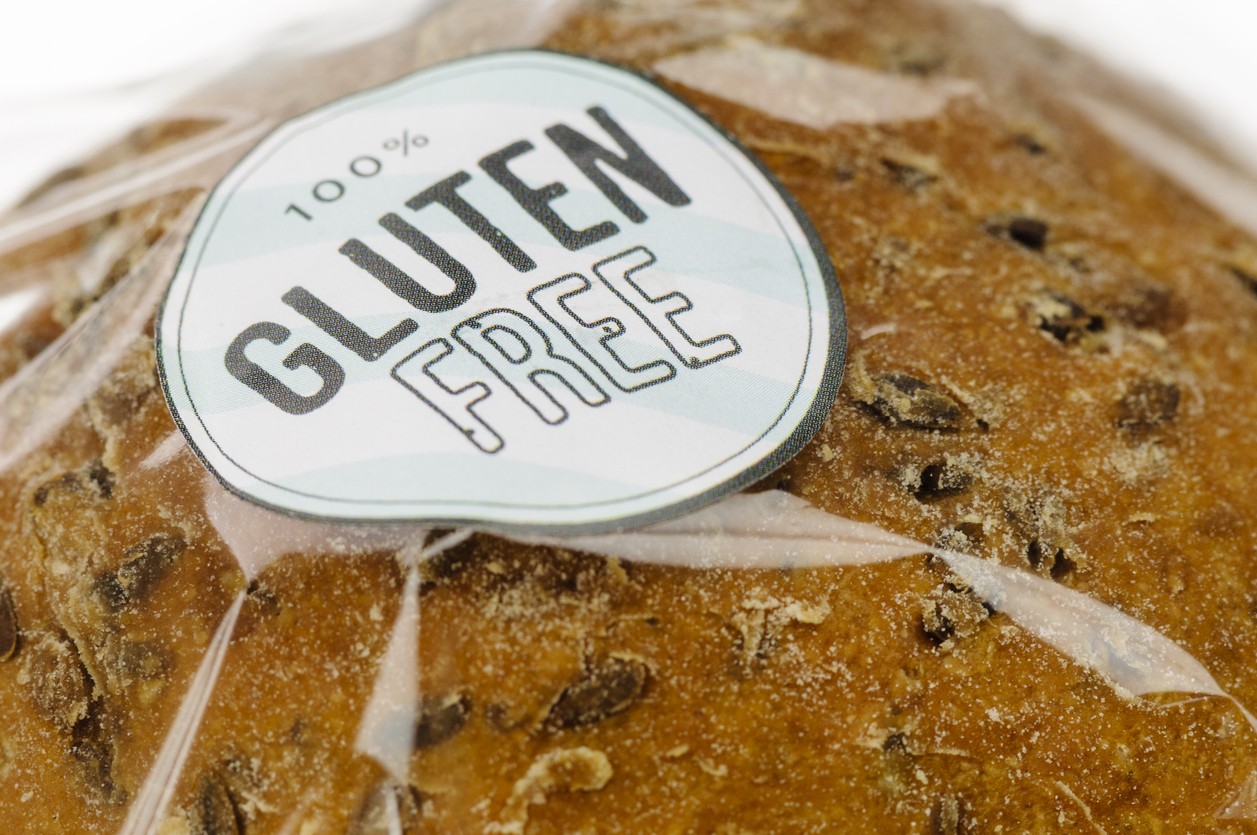
Food items labeled “gluten-free” have a health-conscious sheen, but Otto says that some of these are actually ultra-processed and best avoided.
“Gluten-free snacks are a category that often surprises people. It’s crucial to understand that ‘gluten-free’ doesn’t automatically equate to ‘healthy.’ Many gluten-free products are highly processed and use refined starches, which are low in nutrients and high in simple carbohydrates,” she explains, adding that they also tend to be low in fiber and high in sugars and unhealthy fats to improve their taste and texture.
“For those who need to avoid gluten, I always emphasize the importance of focusing on naturally gluten-free whole foods like fruits, vegetables, and gluten-free whole grains such as quinoa or brown rice,” Otto says.
6
Fruit juice

Next, Otto cautions against fruit juice, which she calls “a particular concern of mine.”
“While whole fruits are undoubtedly healthy, fruit juices can be problematic for several reasons. The juicing process removes the beneficial fiber that helps slow sugar absorption, leaving behind a concentrated source of fruit sugars,” she says.
In fact, the nutritionist notes that a single glass of juice often contains the sugars of several fruits, without the satiety-promoting fiber. “The rapid absorption of these sugars can lead to blood sugar spikes, which is especially concerning for those managing diabetes or weight. I always encourage eating whole fruits or making smoothies that retain the fruit’s fiber instead,” she shares.
RELATED: The Only Foods You Should Be Eating at Night, Doctor Says.
7
Canned fruit
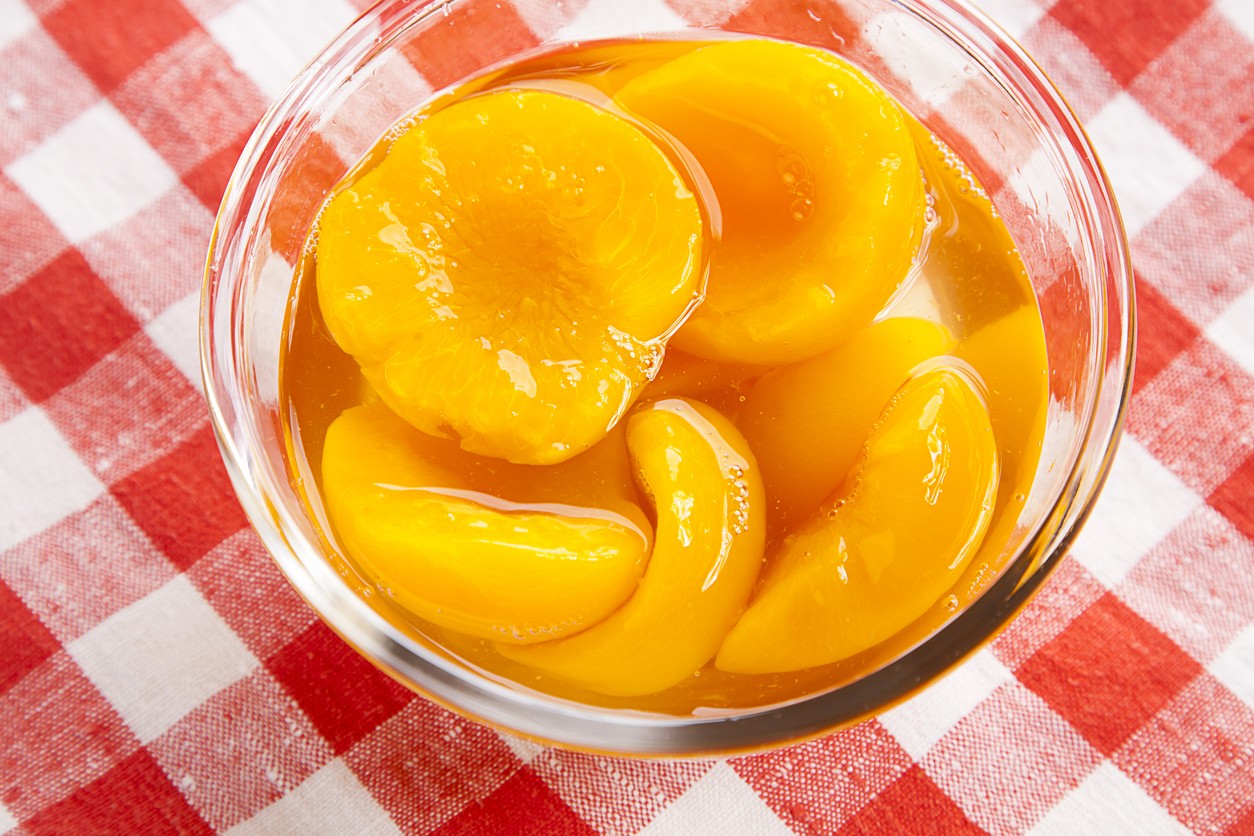
Another way that you can technically consume fruit while completely missing out on its benefits is by eating canned fruit, says Parrish in a separate TikTok post.
“You would expect canned fruit to be just two ingredients—fruit in its own juice—but no. This is a prime example of ultra-processed food,” he says.
The recipe expert says that these items are soaked in high fructose corn syrup, or worse: sucralose or acesulfame potassium. These are “two of the worst artificial sweeteners that are to be avoided,” Parrish says.
8
Bread
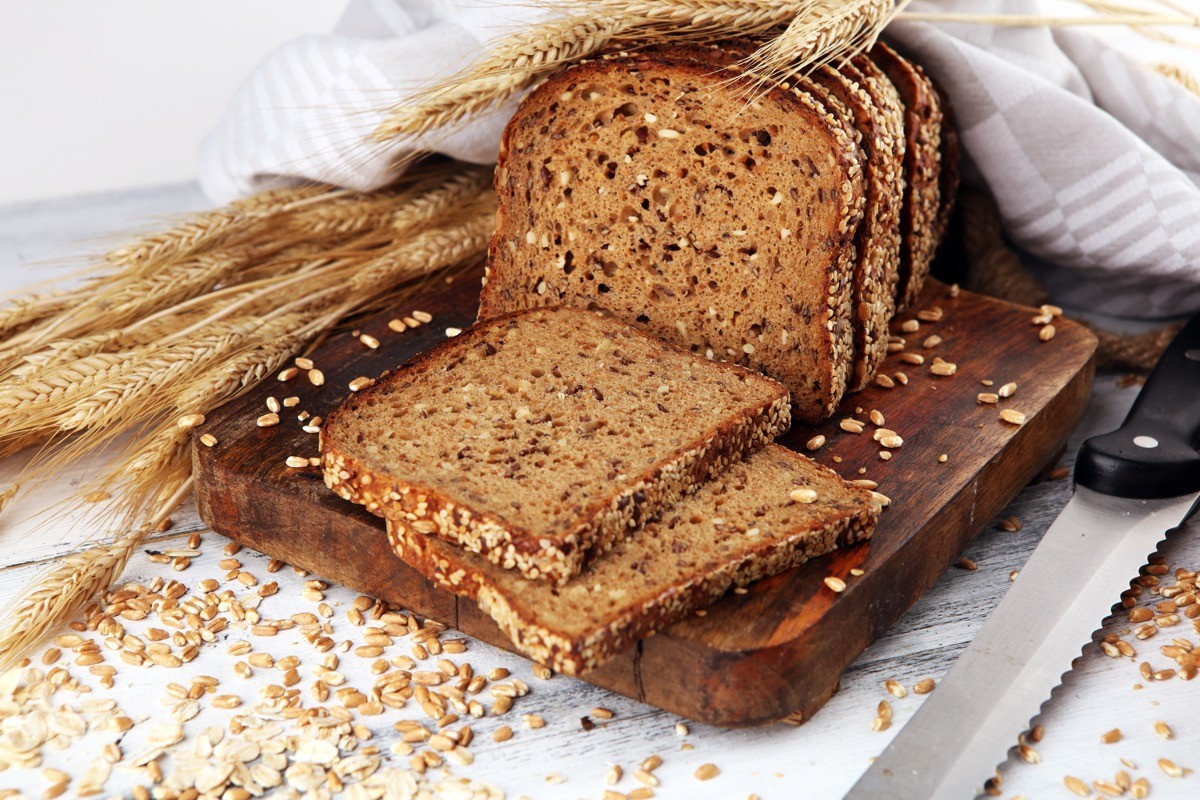
Finally, Parrish says that you should always take a close look at the nutritional labels on bread before making your way to the checkout.
“The bread aisle in the grocery store can be very confusing. There are processed breads and ultra-processed breads… and there’s a big difference between the two,” says Parrish.
In particular, he says that you should look out for ingredients like enriched wheat flour, dough conditioners, soy lecithin, and “natural flavors”—all of which can signal a highly processed product—and instead, stick with recognizable ingredients like those found in Ezekiel Bread.